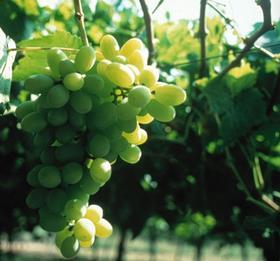
Chile's grape exporters are coming to terms with what is being described as the worst season since the ‘poisoned grape’ scare at the end of the 1980s. With the country’s fresh fruit export season coming to a close later this month, industry leaders have also revealed poor results are prompting some producers to abandon plantations altogether in favour of grain or citrus production.
“Table grape exports will have dropped some 8 per cent this season to 776,000 tonnes, deepening the problems seen in the 2006/07 season, when exports fell by 6 per cent,” commented Rodrigo Echevarría, president of growers association Fedefruta. Table grapes are Chile’s leading fresh fruit export in terms of volume, followed by apples (774,000 tonnes in 2007/08), and avocados (146,000 tonnes).
Producers are blaming this season’s unhappy results on poor weather, the low-valued US dollar, increases in production, labour and transport costs, and rising prices for competing grain crops. The fear is that such problems facing the industry could worsen.
“It wasn’t that bad a season for cherries, apples and pears, but many growers will have to carefully study their current production methods, their market destinations and their crop selection in order to restore profits to their businesses,” Mr Echevarría told Fruitnet.
Some plantations are already being switched to other crops in parts of the Metropolitan Region and Region VI. “There are lots of grapes being pulled up, perhaps as much as 5 per cent of our plantations,” he revealed. “It is the poorly producing hectares that are being taken out, and new plantations planted several years ago will be coming into production next season, so there may not be a overall net drop next season.”
He continued: “Putting brakes onto our table grape deal is a slow process. Thompson and Flame production will be most at risk, because labour and production costs are so great. But Red Globe production will continue as it has done.”
Mr Echevarría also noted that even though Chilean exports of cherries and blueberries continue to grow at a healthy rate, prices this past season were down for the first time, something he called “a very disconcerting development.”



